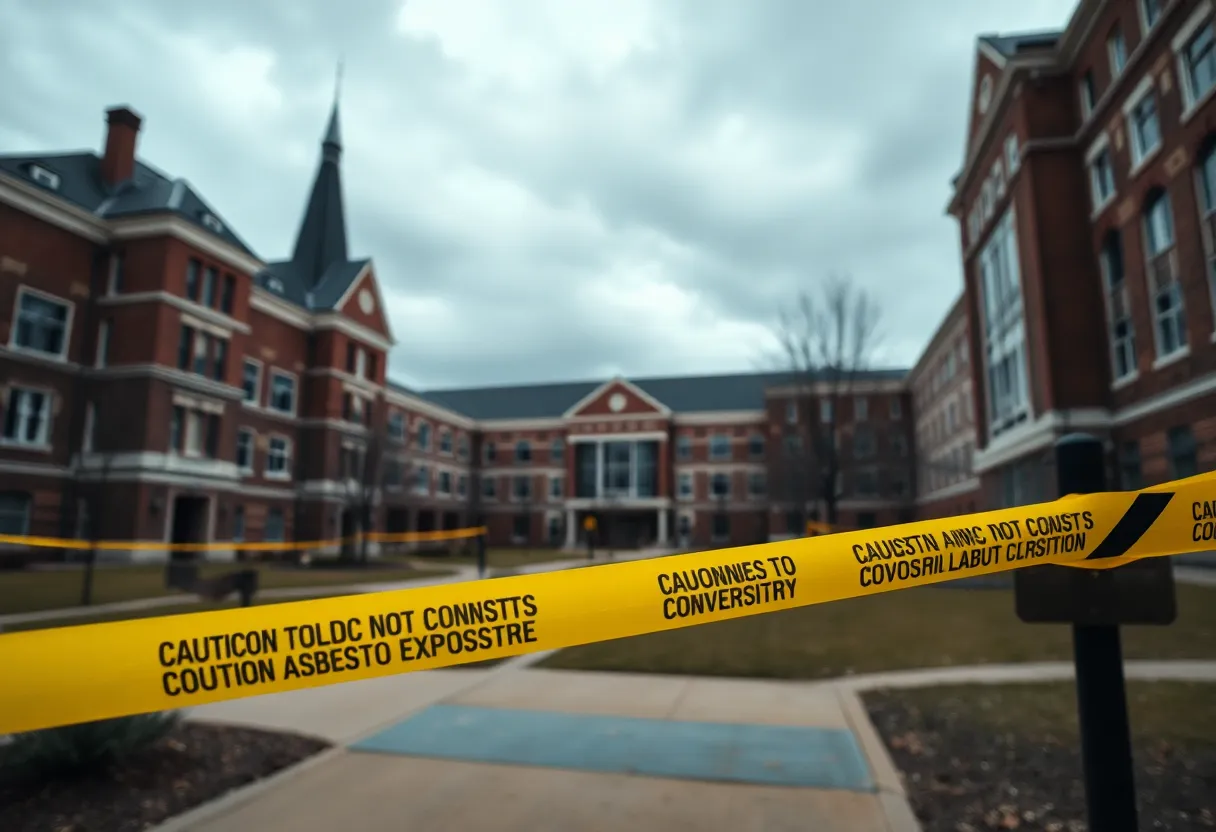News Summary
Fairmont State University is facing a contentious lawsuit regarding asbestos exposure related to a former student who developed mesothelioma.
Fairmont State University Faces Asbestos Lawsuit Amid Health Concerns
Fairmont State University (FSU) has found itself embroiled in a contentious mesothelioma lawsuit that raises serious questions about the safety of its campus environment. The lawsuit was filed by Donna Spurling, who alleges that the university knowingly allowed her exposure to hazardous asbestos during her time as a student from 1998 to 2004. In 2022, Spurling received a devastating diagnosis of mesothelioma, a rare but aggressive cancer often linked to asbestos exposure.
The Allegations Unveiled
Spurling’s lawsuit consists of 18 counts against multiple parties, including FSU, Mon General Hospital, and the West Virginia University Health System, among others. According to the legal claims, the Board of Governors at FSU allegedly withheld crucial information regarding the presence of asbestos on campus, leading to the continued exposure of unwitting students like Spurling.
Initially, Spurling sought a settlement of $650,000 with the university; however, FSU abruptly halted negotiations and enlisted a legal team with experience defending organizations entangled in similar litigation, a move that has drawn the ire of Spurling’s attorney, Michael Robb. He argues that the university has been aware of the asbestos issue for over 50 years yet has made attempts to conceal this information from students and staff.
A History of Asbestos Concern
The backdrop to Spurling’s allegations is rooted in West Virginia’s ongoing struggle with asbestos contamination. In 1986, a significant lawsuit saw the state taking action against 73 asbestos manufacturers due to asbestos found in public buildings, including FSU. A remediation effort allocated approximately $20 million to address the problem, but Robb claims that only the state capitol complex benefitted from these funds, leaving FSU and other sites neglected.
Robb has expressed his readiness to provide evidence of asbestos-laden materials across the FSU campus. These materials, including floor tiles, ceiling tiles, joint compounds, and boiler insulation, can release toxic asbestos fibers into the air as they deteriorate, creating an unsafe environment for anyone present.
Plans for Further Legal Action
Robb intends to escalate matters by filing a class action lawsuit against FSU regarding the widespread asbestos exposure. He alleges that the university bears responsibility not only for Spurling’s health crisis but also for the potential health risks facing current students, faculty, and maintenance staff who may come into contact with these hazardous materials.
Impact on Health and Safety
Asbestos exposure has been widely documented as a serious health risk, linked to conditions such as lung cancer, mesothelioma, and chronic inflammatory diseases. The Occupational Safety and Health Administration (OSHA) mandates stringent regulations for educational institutions dealing with asbestos, underscoring the importance of maintaining a safe environment for students and staff alike.
Spurling’s diagnosis has led to significant health challenges, including chronic pain and the loss of half a lung, drastically affecting her quality of life. She has expressed considerable regret for attending FSU and has vocalized her concerns about potential exposure to her children, stating that she would not have chosen this university had she known of the risks involved.
A University’s Response
In light of the lawsuit, FSU has issued a statement reiterating its commitment to the health and safety of its community. However, the university has refrained from commenting on the specifics of the ongoing litigation, leaving many questions unanswered and raising alarms among stakeholders regarding the safety protocols in place.
Understanding the Risks
The implications of this lawsuit extend beyond Spurling’s case, highlighting a broader issue regarding the potential dangers of legacy asbestos products still present in older educational institutions. With its past and the legal claims now becoming increasingly public, FSU faces mounting pressures to address these health concerns before more lives are impacted.
As this legal battle unfolds, the spotlight remains on the responsibilities of educational institutions in ensuring the safety of their campuses while managing past mistakes linked to hazardous materials that pose extreme risks to public health.
Deeper Dive: News & Info About This Topic
HERE Resources
Historic Asbestos Ban: A Turning Point in Public Health
California Wildfires Ignite Hazardous Cleanup Challenges
Wildfires Ravage Los Angeles: The Hidden Danger of Asbestos Exposure
Retired Radio Engineer’s Asbestos Death Highlights Risks
Inquest Launched Following the Death of Former Factory Worker Linked to Asbestos Exposure
Great-Grandfather from Swindon Dies from Asbestos-Related Disease
EE Kilburn Store Closure Due to Asbestos Discovery
Asbestos Awareness Takes Center Stage in Parliament
Man Fined Over £20,000 for Illegally Disposing of Asbestos Waste
Minnesota Court Denies Company Immunity in Mesothelioma Case



















